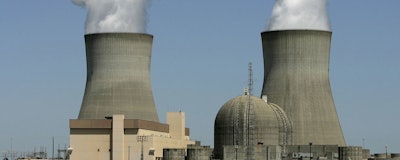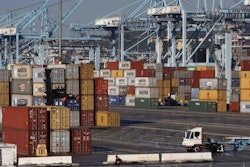
Chemists from the University of Manchester say a recent study could offer a path toward effective treatment of radioactive waste from nuclear power plants.
A research group in the university's Centre for Radiochemistry Research examined how phosphorus and other so-called "soft" elements interacted with thorium, a radioactive metal that can be used as fuel in nuclear energy production.
Elizabeth Wildman, a PhD student, noticed that some unusual forms of phosphorus were stabilized by the metal. Researchers said that thorium helped trap single and double thorium-phosphorus bonds as well as more fundamental atomic combinations.
Nuclear power plants generate energy by using steam from reactors to power their turbines, and some environmental advocates support it as a readily-available way to produce low-carbon energy.
Critics, however, warned of the dangers posed by nuclear power, including the threat of meltdowns and the need to deal with its radioactive waste.
The study's findings, Manchester researchers suggested, could one day lead to materials that can stabilize radioactive waste and improve management of nuclear fuel.
"We have a long way to go before we have a fully developed framework of understanding of the bonding of these elements, but the surprising findings of this study contribute to building that understanding," said Steve Liddle, who serves as co-director of the radiochemistry center.






















